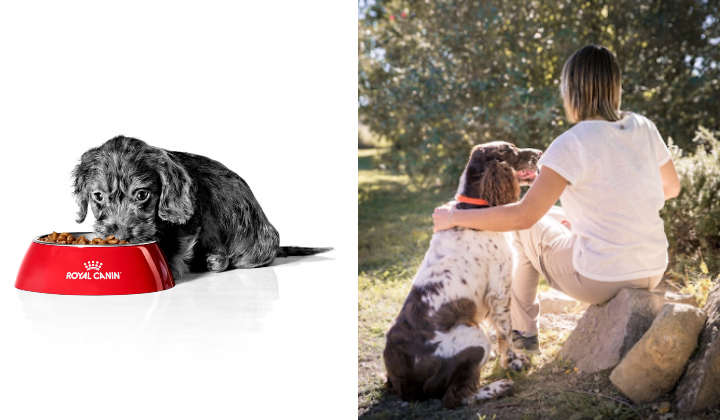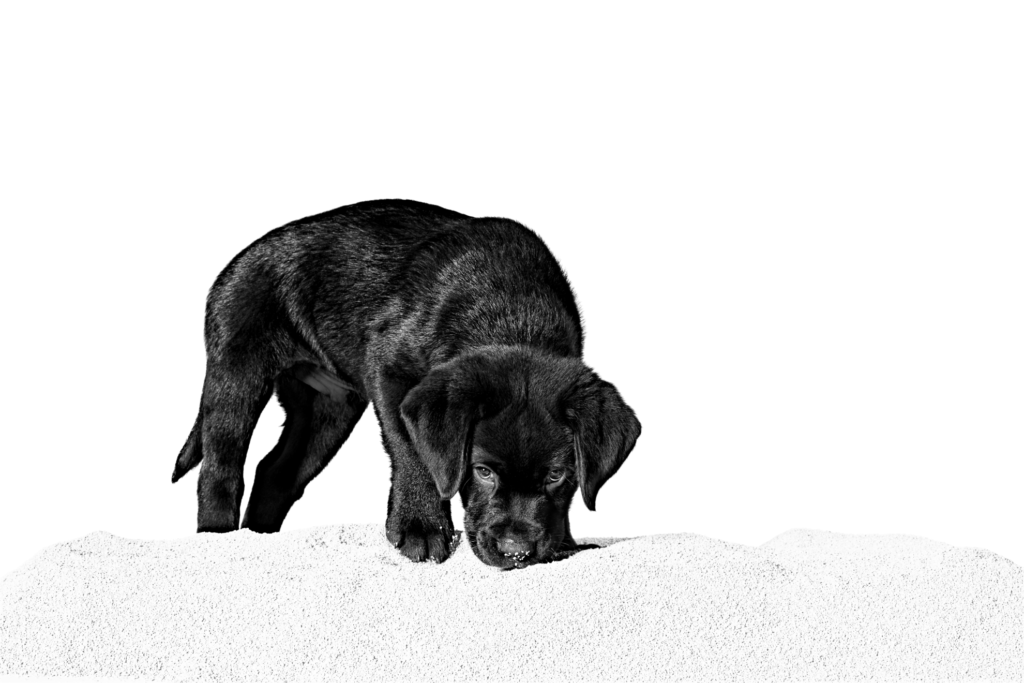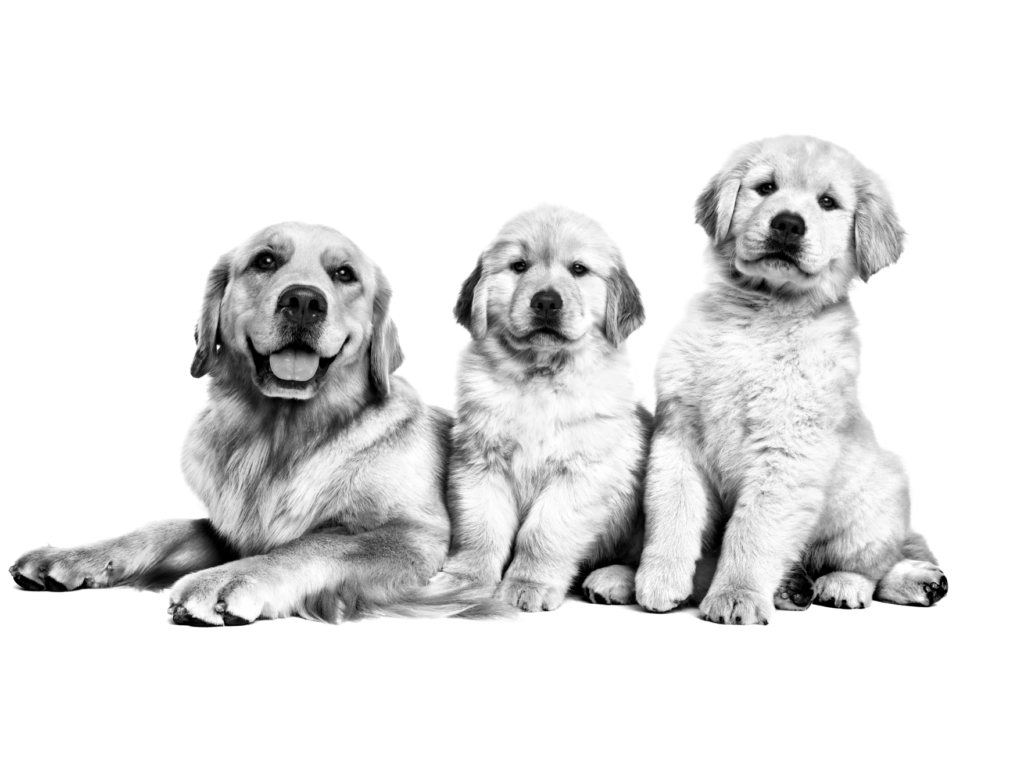Puppy Love: An Essential Guide For Your Pup’s First Year
A wholesome diet is key to sustaining your pup’s long-term health!

Subscribe to our Telegram channel for the latest stories and updates.
A puppy is a delightful new addition to your life. Whether you’re a new pet parent or a lifelong dog owner, the first year of your pup’s life is a critical and formative time.
It’s the first year that determines if the future years you spend together will be fulfilling and stress-free for both you and your new best friend. During this time, proper nutrition is the most important aspect of your dog’s development.
“Pet parents should understand that growth is a life stage where many developmental processes occur. More often than not, changes occurring at this stage are often permanent or have a huge impact on dogs during adulthood, and may even span until their senior years,” said Dr Dylan Choy the Scientific Communication Manager at Royal Canin.
The veterinarian explains that a wholesome diet is key to sustaining a pup’s long-term health and that improper nutrition may provoke unwanted health problems.

Clinical symptoms resulting from improper nutrition (either excess or deficiency) often do not manifest in a short period of time. For example, puppies fed with diets of imbalanced calcium-to-phosphorus ratio can result in bone abnormalities which may lead to a fracture of the bones during playtime.
Dr Dylan Choy.
Dr Dylan says that instead of risking health issues, pet owners should only provide their dogs, especially puppies, with a complete and balanced nutritional solution which are tailored to their life stage to ensure healthy growth.
Debunking common puppy food myths

There’s a huge gap in the general awareness of health and nutrition for puppies. We often come across uninformed sources or old practices that are not verified by veterinary professionals.
Considering how accessible puppy diets are these days, there is still a large number of pet owners that still purchase adult dog food for their puppies. According to a global survey (Source: Inc. Discounters in Germany), 70% of puppies and kittens are fed adult pet food.
There’s a clear lack of awareness of puppies’ health and the role proper nutrition plays at the start of their lives.
Myth #1: Puppies can take adult dog diets
Puppies have distinctly different needs, especially for specific nutrients such as protein, calcium, and phosphorus. Generally, puppies require a higher daily caloric intake in order to support their growth process. By feeding puppies an adult dog diet, they are deprived of these essential nutrients that may affect their growth and risk incomplete maturation of their body systems.
Myth #2: Puppies need to be supplemented with milk until adulthood
Pet owners are often unaware of their puppies’ growth rate. In some cases, pet owners still supplement puppies as old as 10 months old with puppy milk. Coupled with a complete and balanced puppy diet, they may risk excessive daily nutrient and caloric intake for their pups which can lead to them being overweight or even juvenile obesity.

Myth #3: Diets that contain chicken will trigger an allergic reaction
Although some dogs may have true allergic reactions towards certain animal proteins, pet owners should understand that allergy is highly individualized and not all dogs are allergic to a certain food or ingredient. To determine if your dog is truly allergic to a certain protein, pet owners should reach out to their veterinarians and discuss the need for a food elimination trial using specialized dietary options.
Myth #4: Raw meat diets are better than kibbles
The World Small Animal Veterinary Association (WSAVA) Global Nutrition Committee released a statement in 2020 regarding raw meat-based diets for pets. It highlights that there is no scientific evidence to show that raw meat diets provide health benefits over commercial pet food that are complete and balanced. However, many risks relating to food safety and hygiene have been highlighted. With Malaysia’s climate, the risks of bacterial contamination for raw meat diets are even higher.
If your puppy tends to reject kibbles, there is a possibility that the kibbles are too large or too small. Inappropriately sized kibbles cause difficulty in chewing, which causes them to reject the kibble. However, in case of any doubts or concerns, it is always advisable for pet owners to reach out to their veterinarians for further advice.
How do I know if I’m feeding the best for my puppy?

Most pet owners are aware of the importance of quality nutrition, which they often would relate to the type of ingredients used. But in truth, when it comes to sustenance and nutrition, it ultimately boils down to the amount and quality of nutrients in the food.
When looking for pet food, the quality control process and the finished product should meet the nutrient profiles based on the guidelines set by the Association of American Feed Control Officials (AAFCO) or the European Pet Food Industry Federation (FEDIAF).
Pet food manufacturers should have adequate quality control that includes ingredient validation, final diet nutrient analysis, toxicology, bacteriology, and packaging/shelf-life, screenings prior to, during, and after manufacturing.
Thus, at Royal Canin, we cannot emphasize enough the importance of tailored health nutrition for puppies, especially based on their growth rates which may differ according to their breed size.
Dr Dylan Choy.
Royal Canin is a leader and expert in the pet food industry. They believe pets make our world better, and in return they strive to make “A BETTER WORLD FOR PETS”, to transform the health and well-being of each cat and dog by pushing the limits of nutrition and knowledge by offering them the best possible nutrition.
With more than 50 years of experience in the industry, their knowledge in understanding dogs’ nutritional needs based on age, breed, lifestyle, body type, and health conditions are backed by observation, research & development, and partnership with pet professionals such as veterinarians and pet experts.

Dogs come in many sizes, and with this also comes the various characteristics, lifestyles, and nutritional requirements. Royal Canin provides dogs with a specific diet which is measured according to each of their needs.
Their breed range has been designed to meet the unique nutritional needs and support the health of specific breeds, featuring high-quality protein sources, unique nutrients, and designed with specific shape, size and texture for each dog’s facial and jaw structures and biting patterns.
Get their tails waggin’!

Your dogs deserve the best. For more information on Royal Canin and their different ranges of pet food, visit Royal Canin’s website and follow their official Facebook and Instagram pages.
Share your thoughts with us via TRP’s Facebook, Twitter, and Instagram.





